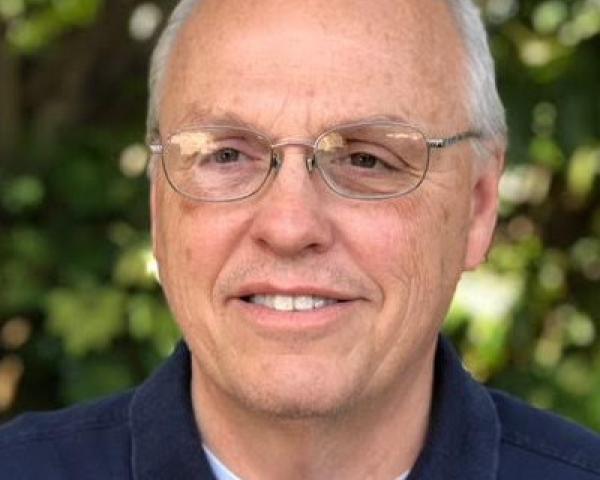There is little doubt the world has changed, forever, as a result of COVID-19. In the aftermath of any upheaval that affects society so broadly, there will be a shift in behavior as people begin to react and behave based on their perceived new reality. What compounds the effect of this particular event is a fear of the unknown made more concerning by a general lack of confidence that anyone actually knows what will happen.
After COVID-19 runs its course, will we return to what was? Will people’s behavior have undergone a permanent change?
Habits are supposedly formed over about 28 days of consistent behavior. If that is true, then lots of new habits are being formed over this period of physical distancing, isolation, scarcity (at least of toilet paper and adequate bandwidth for Zoom meetings and conference calls) and fear.
This uncertainty over the future has brought entire industries and markets to their knees. Markets hate uncertainty (see the stock market). Business is driven by the ability to make decisions, ideally based on information, not just intuition. Yet when data is no longer relevant to the reality of the moment, it’s hard to make reliable business decisions. The result is usually either paralysis or adherence to what you “know” to be true.
However, this moment affords a better course; it is an opportunity to renew your business. When forecasting the future, much is unknown, and, while it’s possible we return to what we recognize as normal, the absolute least likely version of the future is “no change.” Those companies that emerge from these uncertain times stronger will be those that use these times to successfully prepare their business to meet a “new normal,” whatever that may be, and create as much clarity from uncertainty as possible.
We do not know what the future holds; none of us do. But we do have an approach. There are three steps to begin the process of preparing your business for what’s next.
See also: COVID-10 Moral Imperative for the Insurance Industry
First, transformation is achieved through a renewed mindset. No one ever does anything they cannot first imagine. Your executive team must adopt a new mentality, a new understanding, a new commitment to thinking differently.
More than about how COVID-19 has changed the world and your place in it, a renewed mindset projects a much greater opportunity. Are your executives willing to face the possibility that the business model you operated under six months ago and the business model you may have six months from now do not align? Are they willing to do what it takes not to avoid compounding the current crisis with another crisis?
A change requires companies to examine their purpose, their strategy and their customer in light of these continuing changes. Guesswork and speculation are easy and entertaining. Converting to clarity requires shift in mindset.
This renewed mindset is an irreplaceable cornerstone of planning for the future. Every company today should approach these times like a STARTUP, or at least a RESTARTUP.
Second, you need to identify every assumption and thesis that underpins your existing business model. From the resources and relationships you require to operate, to the customers you serve and their behavior and how you engage your customers, many assumptions may no longer be valid (if they ever were).
Is your supply chain still valid and sustainable? Has your target customer changed? Have customers changed the way they feel about your products or services? Do people view your value proposition differently?
This self-examination may be uncomfortable, but it is necessary. Identifying assumptions and theses requires executives to actively participate and be open to suspend long-held beliefs. We are not saying these beliefs and assumptions must be surrendered, but they must be examined. The assumptions and theses that kill businesses are those that are so embedded they go unrecognized.
The ability to facilitate this self-examination by a protagonist, who is not bound by the unrecognizable constraints inherent in the business and is willing to approach the exercise with no preconceived answers or bias, is critical. If you fake your way through this, you will fail.
Third, you must test every assumption. Discernment only comes with examination, with testing. Testing assumptions and theses requires executives be completely open to a future that is highly undesirable but still plausible.
Identify what data points you will need to ascertain whether each assumption or hypothesis is true. Assembling the right data on which to test assumptions and theses may hinge on accessing new technologies to gather data and finding new ways of analyzing the data.
An effective facilitator in this process guides executives to identify which assumptions are actually relevant, those that have the most uncertainty, those that have the most potential impact. The ability to ask the not-so-obvious question is important, as is the discipline to examine motivation, why people behave or react the way they do.
Executive teams must be able to ask “why do we do that?” “what if?” and “what’s possible?” at every turn. You have to face the unthinkable. No assumption goes unexamined, and nothing about the past is sacred.
Those companies that successfully prepare their business to meet a “new normal” will be those that undertake this renewal process and gain a new understanding of their supply chain, of the resources they need to execute and of their customers’ problems, attitudes and needs. Every executive will face shifts in the market that could not have been anticipated.
Our renewal process is an approach to emerge stronger. Our renewal process will cause executives to examine every aspect of their value chain, including resources, supply, engagement and the ultimate transaction.
The strong will renew their businesses, then, based on the strategies and constraints developed from this process, they will undertake an intentional scenario planning process and innovate in the context of what the “new normal” might be.
See also: How Agents Are Adapting to COVID-19
This call for renewal is applicable to all businesses. But, because of our historic emphasis on insurance and risk, I want to be clear. I’m not talking about renewing insurance policies, nor renewing any aspect of what was; rather the process requires a renewal of the mind. It results in a reimagining of what should be.
We all thought insurtech was going to produce a seismic shift in the insurance industry, and to an extent it has. By contrast, the global reaction to this virus will create a tectonic shift. People and businesses will reconsider what they truly need and don’t need and why they feel they need it, from whom they want it and how they want it delivered. This will create a broader world of opportunity.
So, I am officially planting the flag of the future on the hill of RENEWAL. Renewal will lead to transformation fueled by constrained innovation, resulting in accelerated growth.
Our renewal process will accelerate your restart. You want to be on the right side of the starting line.







